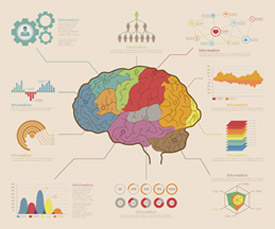Neuropsychological Assessment

Neuropsychology looks at how brain function affects behavior. It uses the combined sciences of neurology, psychology, and psychiatry and applies these to individuals experiencing difficulties in the areas of attention, learning, memory, language, visual and spatial functioning, and sensorimotor functioning. It also applies the science to "higher" (metacognitive) brain skills such as planning, organisation, decision-making, and problem-solving.
A neuropsychological assessment involves a series of psychological and functional tests that systematically examine how the different areas of the brain are functioning and thereby affecting a person's ability to manage his or her life tasks and experiences in the world.
A QEEG assessment, which is a functional study of the brain, in conjunction with at neuropsychological evaluation, may assist with understanding the nature of the problem and may provide information about treatment as well.
The traditional assessment will include a medical history provided by the client, physician(s)/hospital records including MRI or CT scan results, all obtained with the client's consent, as well as an interview with the client and possibly a close family member/significant other (collateral information).

Clinical neuropsychology is based on the highest scientific integrity and requires highly specialised training beyond that of a typical clinical or school psychologist. Dr. Helmer has a PhD in Psychology and a Post Doctorate in Clinical Neuropsychology.
To learn more about QEEG, click here.
To learn more about Neurotherapy, click here.
A report will be provided to the client and with consent, to his/her physician or specialist to help refine a diagnosis, improve the plan for treatment and/or care, or provide a baseline against which improvement or deterioration in function can be compared. The report for the client will include a written copy and an interpretive interview with Dr. Helmer.